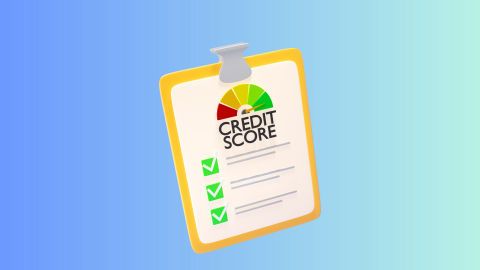The way you maintain your credit score creates a perception about you in the financial world. The activities through which you manage your credit and debit determine whether your application for credit gets approved or rejected. Additionally, it also decides the interest rate you are liable to pay. Your personality and behaviour are constantly assessed when it comes down to credit. While many credit rating agencies assign you a score based on your credit history, CIBIL is the most common and widely used.
CIBIL assigns you a score of 300 - 900, based on factors like
- Your timeliness with repaying credit in the form of EMIs or credit card bills
- Your credit utilisation ratio, when it comes to your credit card limit or loan vs. income
- The number of times you have applied for credit in the recent past and been rejected or approved
Here is how your credit score defines your financial habits and how you can proceed from one category to the next.
1. The newbie
Credit score: 300 - 560
Lenders will usually not entertain your application for a loan or credit with a credit score in this range. You may have this score because you have not taken any credit in the past or have just started working and are using a credit card or taking on debt for the first time. Or, because you may have made too many inquiries for credit in quick succession at the start of your career without any real credit history.
How to improve your credit score?
To boost your score, take a small debt like a collateral-free personal loan and repay it with regular and timely EMIs. Use your credit card wisely, paying off more than the minimum balance. Ensure that you do not use up your entire credit limit. Keep your utilisation to 30% for the best results, and you will see your score increase. So, a good practice is to check your credit score for free regularly and correct any possible discrepancies as soon as possible.
2. The ambitious borrower
Credit score: 561 - 650
With a credit score in this range, lenders are sure to perceive you as fresher. So, you can get a loan at an excessive interest rate, as you are viewed as a credit risk. You may also not receive any pre-approved credit card or loan offers. This credit score reveals you have not been timely or responsible with credit in the past. It might mean that your loan applications were rejected, or you have made too many enquiries for loans without proper financial planning or forethought. It could also mean you have not experienced job stability or have switched jobs too quickly to be considered a reliable borrower.
How to improve your credit score?
To step into a safe zone, increase your credibility by planning your expenses better and clearing your dues before the given date. Use the eligibility calculator for loans before you apply to ensure you qualify. Also, confirm you do not apply for credit frivolously or for unimportant desires. If you have multiple credit cards, pick two or three that offer you better rewards, and use them with care, paying off the total balance without incurring additional interest. A little financial planning can help you move from this score bracket into a more respectable one.
3. The moderately disciplined financier
Credit score: 651 - 749
If your credit score is in this range, you are almost at the stage where lenders look upon you as a trustworthy and creditworthy applicant. This score reveals that you have built a credit history, taking on unsecured, and secured credit. At this stage, you can get a loan or avail of credit at a decent interest rate but may not get a high credit limit. Several reasons could influence this, the most important being your income and money management. You may also be getting some pre-approved loan and credit card offers, but before accepting the offer, continue to plan your finances with care.
How to improve your credit score?
By following the 30% credit usage rule, you will see increased faith from creditors. This translates to a higher credit limit for you and even better interest rates over time. Continue to use your older credit cards wisely before taking on new cards, and keep your EMI payment regular. Look for loan options like a Flexi Loan facility, which allows you to manage your cash flow better.
4. The dependable finance whiz
Credit score: 685 or higher
With a 685 or higher score, you are looked upon as someone who has mastered the art of credit utilisation and financial management. If you have a credit rating this high, you could give out advice to your peers on how to manage their funds. You are not considered a credit risk at this stage, and your loan applications get approved with ease. More importantly, you get the most competitive interest rates from lenders. You will also receive pre-approved offers from credit card issuers and lenders, but to maintain your CIBIL Score, ensure you evaluate every offer carefully. Continue to use the EMI calculator to plan your repayment.
How to maintain your credit score?
Getting on top is easy; staying on top is the challenge. So, make sure you borrow only as much as you need rather than opting for a credit loan amount just because you have been offered one. Ensure that you keep separate savings for repayment, as a dip in your score is possible when you face an emergency or due to unforeseen problems in your income.
Now you know what your credit score says about your behaviour concerning your personal finances and credit utilisation, work on improving or maintaining it. Acting as a guarantor for someone who defaults on their payment will also hurt your credit score. So, become a co-signor with careful thought and boost your score by following the tips mentioned above. With a good score, you can save more money on loans and credit cards and be well on your way to financial independence and security.








